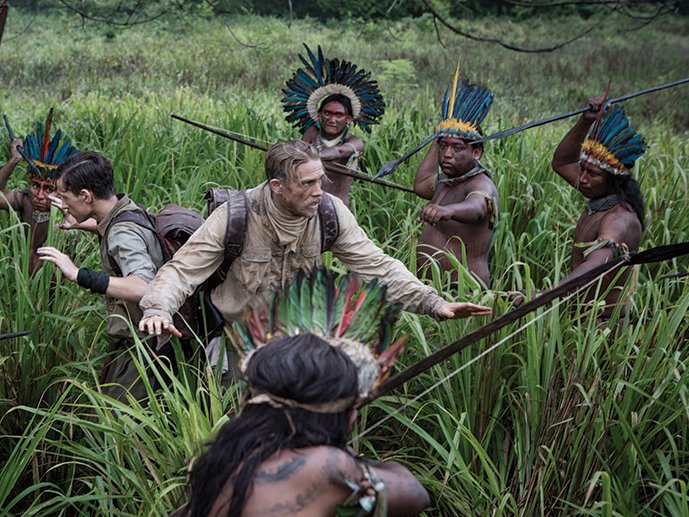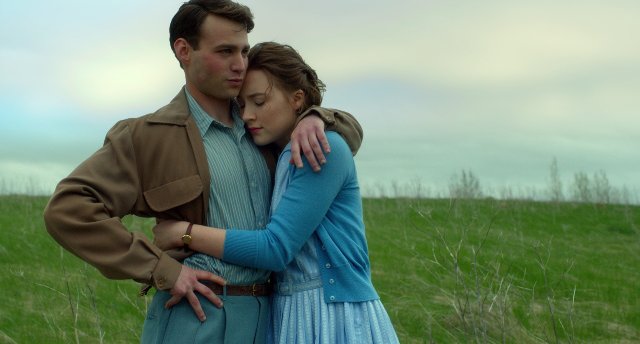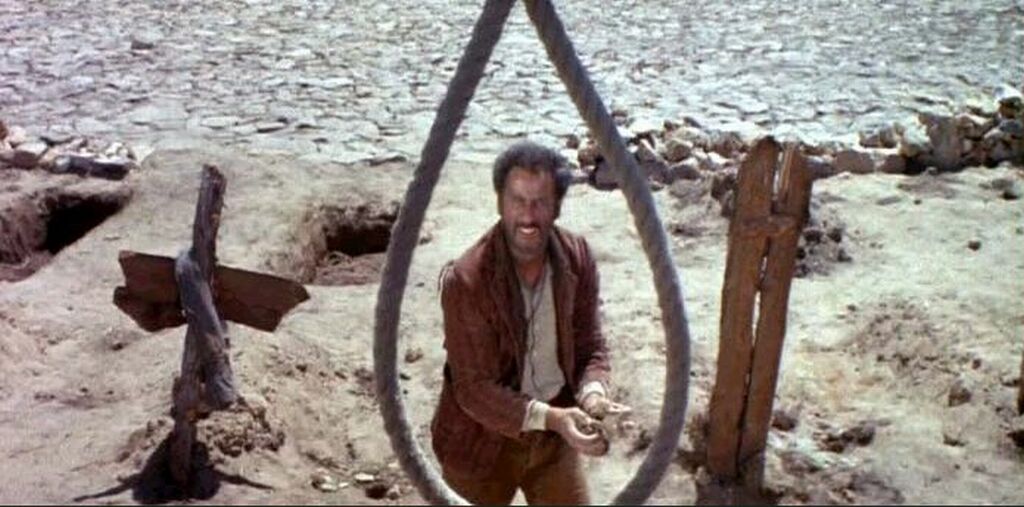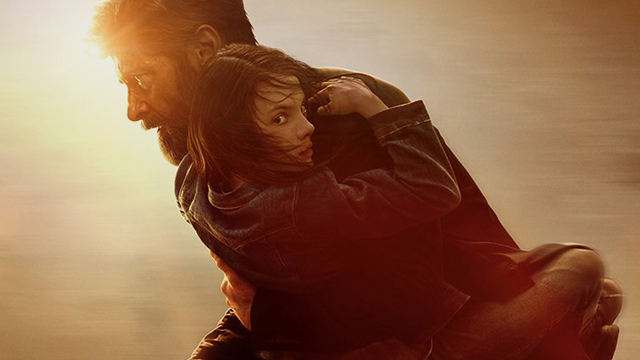“So much of life is a mystery” – says Charlie Hunnam’s Percy Fawcett – an early 20th century British explorer with a penchant for grand philosophical musings. It’s the thesis of The Lost City of Z as well as the driving motivation for Fawcett’s Amazonian exploits. Discovery and danger pulls him away from his family for years at a time while Fawcett believes he is moving closer and closer to a discovery that could “change the course of human history.” He fights the bureaucrats and his families troubled past just for a shot at what…glory? Prestige? Or something deeper?
This is the primary joy of Z as well as its deepest flaw. Fawcett’s trips to the Amazon are often stunning, even shocking to behold. To imagine Fawcett along with his trusty right-hand man Henry Costin (Robert Pattinson) and small band of help coming across ancient cannibal tribes or narrowly avoiding arrows from people who’d rather not be found is tough to comprehend. These are men bound by British civilization – often to a suffocating degree – attempting to interact with different civilizations they can’t help but judge on the surface, even as they resist the impulse.
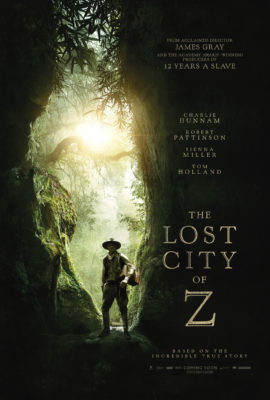 When Fawcett returns from his expeditions he’s greeted by his beautiful wife Nina (a very good Sienna Miller,) son Jack (Tom Holland,) and over-time a new son and daughter. The strain of his trips isn’t immediately apparent as Fawcett pulls himself up from lowly military ranks to become a revered member of British colonial society. But slowly his obsession takes his toll. In an ugly scene Nina tries to convince Percy to stay home with his family only to have him pull rank and reestablish the patriarchy. It hammers home the true nature of the times – even if Fawcett tries to fight against it.
When Fawcett returns from his expeditions he’s greeted by his beautiful wife Nina (a very good Sienna Miller,) son Jack (Tom Holland,) and over-time a new son and daughter. The strain of his trips isn’t immediately apparent as Fawcett pulls himself up from lowly military ranks to become a revered member of British colonial society. But slowly his obsession takes his toll. In an ugly scene Nina tries to convince Percy to stay home with his family only to have him pull rank and reestablish the patriarchy. It hammers home the true nature of the times – even if Fawcett tries to fight against it.
Director James Gray creates a palpable sense of time and place as he paces the film deliberately through Fawcett’s life. Z is classical in every sense of the term, with beautiful sun-drenched vistas, grand-on the nose dialogue an emotional swings and epic set pieces. Gray somehow manages to fit in a very good World War 1 battle scene as well into Fawcett’s story that serves to further idealize a man he clearly reveres.
That man is played by Charlie Hunnam – an actor best known for his role as Jack for several years on Sons of Anarchy. I for one had no idea Hunnam had this in him. His Percy Fawcett is a family man with aspirations that often exceed his grasp – and Hunnam plays Fawcett with such subtlety I was floored. He must play to the establishment but also resent it, love his wife but pull himself away from her at nearly every opportunity, be an absentee father but the respected head of his house. It’s the push and pull that Hunnam manages so expertly and hopefully he will continue to find roles that exploit his absurd talent.
Given Hunnam is in nearly every frame of Z it leaves little time to establish any of the other central cast members. Twilight-alum Robert Pattinson is very good as Henry Costin but is given very little to do beyond following Fawcett around every ill-advised corner. Sienna Miller is also given agency beyond the typical grieving house wife but it felt more like a box being checked that an actual character. Miller does an admirable job with the material but is drowned out by Gray’s need to get back to Percy’s central journey. Even Percy’s relationship with his son Jack comes a hair too late to be satisfying as the film rushes to reconcile a broken bond to reach the inevitable climax.
All said, I admired most of The Lost City of Z. In many ways, it’s a film lost in time – a dated story that could’ve been crafted in any era. Gray doesn’t neuter the material for modern audiences either opting to present the Fawcett story without prejudice. He may revere his subject to a degree that ultimately holds the film back from greatness but Fawcett’s story deserved to be told. We may never know if he found what he was looking for but his steadfastness may have, over time, accomplished his ultimate goal.

